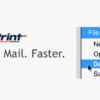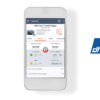Why segmenting campaigns by device makes sense… most of the time
Take a look at how your campaigns are performing on desktop, tablet, and mobile. Chances are you’ll see the majority of your clicks, spend and conversions coming from mobile devices.
Here is an example of a client’s lead gen campaign over a 3 month time period.

After seeing that the spend on mobile was 3x greater than on desktop and tablet, we made the decision to create device-specific campaigns in order to have better control over the daily budget. To do this, we simply replicated the original campaign so all the settings and targeting were exactly the same and we applied a -100% bid adjustments to the devices we wanted to exclude for each campaign (We also created new ad copy but we will get to that later).
Original Campaign: Desktop + Tablet

New Campaign: Mobile Only

Before, we had a total of 28 conversions in 3 months (4% conversion rate). After we segmented our campaign we had over 70 conversions at a 5.8% conversion rate during the same 3 month period.
This was a complete game changer for our client, but before you start device-specific campaigns, here are a few things to ask yourself:
- Do I have enough data to see clear performance differences for each device? – The main reason we decided to segment our campaign was that there was such an enormous difference in performance for each device. You shouldn’t expect mobile and desktop to perform the same way and it may hurt your success overall by hiding a great mobile campaign behind the poor performance of desktop and tablet. Rule of thumb – if there’s a big performance gap, it’s best to split it out when possible (You can always test the waters by running an experiment with your original campaign).
- What is a call worth to your business?– Our conversion rate skyrocketed because we are tracking calls from ads as a conversion. It was important for us to have strong communication with the client about the quality of the phone calls they are receiving on a regular basis, or invest in a call tracking tool.
- How complex is my account?– Segmenting campaigns by the device will add 2-3 more campaigns to your current account which will take more time to manage and prepare reports. Does this make sense for your account structure and organization? Will your account continue to be manageable?
The benefits of splitting the campaign made sense for this particular client. It allowed us to increase conversions by allocating more money to target mobile searches that were more likely to convert. We also were able to utilize ad copy and calls to action that were specific to mobile users (“Call now”, “Call today”, “Speak to Rep”, “Text us Today”). Segmenting to get a more granular view of different campaign aspects is important and can lead to big improvements in your overall PPC performance.
Let us know how device-specific campaigns have worked for you. Leave us a comment below!

About Colby Raker

Like What You Are Reading? Subscribe To Read More
Join our mailing list to receive the latest news and updates from our team.




























